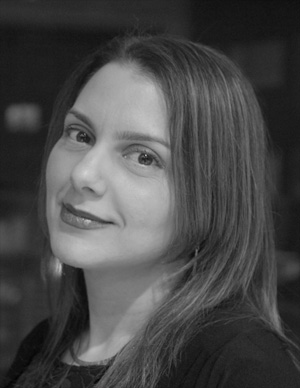Victoria Sammartino
Children who have been abused or neglected are more likely than others to commit an act of delinquency. Those who “cross over” from the child welfare system to the criminal bureaucracy are disproportionately children of color and far more likely to be treated harshly in court. Among nearly 7,500 young people who were admitted to detention in NYC between 2007 and 2009, 69% were crossover youth. This is the vulnerable population to which Victoria Sammartino has devoted her career.
Raised in The Bronx by parents who encouraged her to broaden her horizons, Sammartino participated in after-school arts enrichment, leadership development and community service programs as a teenager. She was awarded financial aid to attend Bennington College, where her interest in creative writing flourished. In 1999, during her senior year of college, Sammartino talked her way into leading a poetry workshop for teenage girls incarcerated on Rikers Island, New York City’s notorious main jail complex that houses 14,000 prisoners. Teaching girls close to her own age, she was haunted by the feeling that only the accident of birth family separated her from them. She discovered that nearly every student in her first class had been through the foster care system.
After college, Sammartino returned to work at Rikers Island and soon began facilitating creative writing workshops in other spaces, including juvenile detention facilities and adult prisons throughout the city. And in 2000, with a $2,000 grant, Sammartino purchased a computer and printer and launched Voices UnBroken out of her Bronx apartment.
She continued to refine her curriculum, providing teen content at elementary reading levels and exploring concepts such as comfort, safety and respect without using words like “home” or “family.” As she gained credibility with city agencies and attracted more grant money, Voices UnBroken grew to a 501(c)(3) organization with a board, a program director and a small staff of part-time facilitators in its own office space.
Seeking to validate her insights, Sammartino contacted Shay Bilchik, founding director of the Center for Juvenile Justice Reform at Georgetown University. In 2010 she attended the inaugural session of a certificate program for private sector leaders at the center focusing on the integration of child welfare and juvenile justice systems.
Today, Voices UnBroken serves hundreds of 14- to 21-year olds living in correctional facilities, group homes and other restricted residential settings. A poet herself, Sammartino is committed to “going in to the dark, confined spaces…to hear the loud, frightened voices of young people missing from their communities and to deliver the simple message that they are not forgotten, that we are not whole without them.”
Though there is growing recognition of the disjunction between policy and practice and plenty of research pointing the way to reform, Sammartino still sees critical information “locked inside” the mental health community and law enforcement personnel who regard their job as “protecting the community from bad kids.”
Sammartino is hopeful about New York City’s transition to a more integrated approach to children and their families, but she feels great urgency to focus attention on the punitive conditions under which children are currently detained.
Crossover youth are “not just falling through cracks,” she says, “but through gaping holes in the system. When children survive this, it’s a miracle, not the norm. Shame on us!”
 Photo by Jenny Alexander
Photo by Jenny Alexander